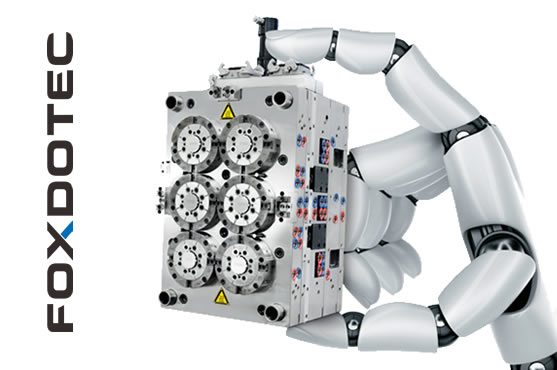Mold Materials Type
Experience excellence in every detail with our Mold Materials! Crafted with precision and durability in mind, our materials are engineered to withstand the rigors of molding processes. Say goodbye to compromises and hello to unmatched quality. Elevate your projects with our premium Mold Materials. Choose reliability, choose excellence—choose us for your molding needs!
Mold Materials
What is Main Mold Materials?
Various materials are used to manufacture molds, each with its own characteristics and suitability for different applications:
- Steel Alloys: Steel alloys, such as P20, H13, and S7, are commonly used for molds due to their high strength, wear resistance, and thermal conductivity. They are suitable for high-volume production and can withstand the rigors of injection molding, compression molding, and die casting processes.
- Aluminum: Aluminum molds are lightweight and offer good thermal conductivity, making them suitable for rapid prototyping and low to medium-volume production. They are cost-effective and can be machined quickly, but may not be as durable as steel molds.
- Beryllium Copper: Beryllium copper alloys, such as C17200 and C17300, offer excellent thermal conductivity and corrosion resistance. They are commonly used for molds requiring high thermal efficiency, such as those used in high-speed injection molding and blow molding processes.
- Titanium: Titanium molds offer high strength-to-weight ratio, corrosion resistance, and thermal stability. They are suitable for applications requiring extreme durability and resistance to harsh operating conditions, but they are expensive and may require specialized machining processes.
Choosing the appropriate mold material depends on factors such as part geometry, production volume, material compatibility, and cost considerations. Each type of mold material has its own advantages and limitations, and careful consideration is necessary to select the most suitable material for a specific molding application.
Precision Injection Mold


How to choice the right Mold Materials?
To excel in Mold Materials
Choosing the appropriate mold material is crucial for successful mold design. Here are key factors to consider:
- Part Requirements: Consider the requirements of the final part, including its size, shape, material, and intended use. This will help determine the material properties needed for the mold.
- Production Volume: Determine the expected production volume. For high-volume production, durable materials like steel alloys may be more suitable, while for low to medium-volume production, cost-effective materials like aluminum may suffice.
- Mold Complexity: Evaluate the complexity of the mold design, including part geometry, undercuts, and intricate details. Some materials, like steel alloys, are better suited for complex molds due to their strength and machinability.
- Material Compatibility: Ensure that the mold material is compatible with the material being molded. Certain materials may react with or adhere to specific mold materials, affecting part quality and mold longevity.
- Cost Considerations: Consider the cost of materials, machining, and maintenance. While steel alloys offer durability and longevity, they may have higher upfront costs compared to materials like aluminum.
By carefully considering these factors, mold designers can choose the right material that meets the requirements of the molding application while balancing performance, cost, and durability.

CNC Machining
CNC machining is a computer-controlled manufacturing process that utilizes pre-programmed software to dictate the movement of machinery and tools. This technology enables the precise cutting, drilling, and shaping of materials such as metal, plastic, and wood to create intricate components with high accuracy and consistency.
Read More
Precision Grinding
Precision grinding is a manufacturing process that involves the removal of material using abrasives to achieve extremely tight tolerances and surface finishes. used to produce components with intricate shapes, precise dimensions, and smooth surfaces. Precision grinding techniques include cylindrical grinding, surface grinding, and internal grinding.
Read More
Electrical Discharge Machining
Electrical Discharge Machining (EDM) is a non-traditional machining process that utilizes electrical discharges to erode material from a workpiece. It is particularly useful for machining complex shapes and hardened materials that are difficult to machine with conventional methods. EDM can achieve high precision and surface quality.
Read MorePrecision machining and manufacturing involve the use of advanced techniques and equipment to produce highly accurate and intricate components with tight tolerances. It requires expertise in machining processes, material properties, and quality control methods to ensure the production of high-quality parts for various industries.
Key Aspects of Understanding Injection Molds
- Design Principles: Understand the principles of injection mold design, including considerations for part geometry, material flow, cooling, and ejection.
- Materials and Construction: Explore the materials commonly used in injection mold construction, such as tool steel, aluminum, and beryllium copper.
- Manufacturing Techniques: Gain insights into the manufacturing processes used to produce injection molds, including machining, EDM, and CNC milling.
- Mold Maintenance and Repair: Learn about the importance of mold maintenance and preventive maintenance schedules to ensure the longevity and performance of injection molds.
- Tooling Standards and Regulations: Familiarize yourself with industry standards and regulations related to injection mold design and manufacturing.
- Advanced Technologies: Stay informed about advancements in injection mold technology, such as rapid prototyping, additive manufacturing (3D printing), and simulation software.
- Cost Considerations: Gain insights into the cost factors associated with injection mold production and learn about strategies for cost optimization.
- Case Studies and Best Practices: Study real-world examples of successful injection mold projects across various industries.
Key Aspects of Understanding Precision Machining
- Processes and Techniques: Explore the various precision machining processes and techniques, including turning, milling, drilling, grinding, electrical discharge machining (EDM), and others.
- Materials: Learn about the different types of materials commonly machined using precision techniques, such as metals (e.g., aluminum, steel, titanium), plastics, ceramics, and composites.
- Tooling and Equipment: Familiarize yourself with the cutting tools, machine tools, and equipment used in precision machining.
- Tolerances and Metrology: Gain insights into tolerance requirements and metrology techniques used to measure and verify part dimensions and surface characteristics.
- Design for Manufacturing (DFM): Explore principles of design for manufacturability (DFM) and how they apply to precision machining.
- Quality Assurance: Understand quality control measures and inspection techniques used in precision machining.
- Applications and Industries: Explore the diverse applications of precision machining across industries such as aerospace, automotive, medical, electronics, and tooling.
- Advanced Technologies: Stay informed about advancements in precision machining technology, including automation, robotics, additive manufacturing (3D printing), and advanced materials.
Precision machining and mold technical documents
Other Downloads
- Technical Parameter 3.9 MB
- Technical Drawing 1.8 MB
